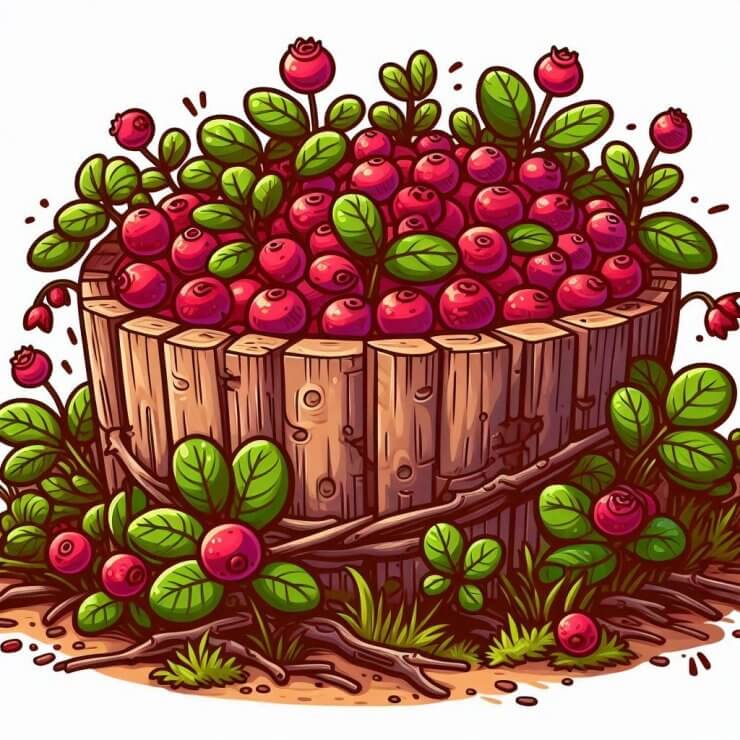Read by Michael Flamel

As the holidays are upon us and the air has already turned crisp, there’s one little fruit that often takes center stage at the season’s festivities: the cranberry. Whether it’s simmering on the stove for Thanksgiving dinner or adding a pop of tartness to a fall salad, cranberries are a staple of the season’s culinary landscape. But while many of us associate this ruby-red fruit with the holidays, cranberries hold far more value than just their seasonal presence at the dinner table.
For centuries, cranberries have been cherished for their impressive medicinal properties and nutritional benefits. Indigenous peoples of North America were among the first to harness the power of the native cranberry, using it not only as a food source but also as a natural remedy for various ailments. Over time, the fruit became a staple in colonial diets, appreciated for its long shelf life and its ability to prevent scurvy on long sea voyages, thanks to its high vitamin C content.
Today, cranberries are known as a true superfood. Rich in antioxidants and packed with vitamins, these small berries offer a host of health benefits. Cranberries are particularly renowned for their role in promoting urinary tract health, helping to prevent infections by inhibiting the growth of harmful bacteria. They’re also rich in polyphenols, which support heart health by improving cholesterol levels and reducing inflammation. Additionally, cranberries are a great source of dietary fiber, aiding in digestion and promoting overall gut health.
Beyond their nutritional profile, cranberries have a unique, tangy flavor that brings brightness to a variety of dishes, making them versatile in the kitchen. Whether you’re incorporating them into a morning smoothie, baking them into muffins, or enjoying them in a sauce, cranberries prove that healthy eating can be delicious, too.
So while cranberries may take center stage during the holiday season, their benefits extend well beyond the dinner table. From supporting heart and urinary health to boosting immunity, these tart little berries pack a powerful punch, proving once again that the best things often come in small packages.
Here are some ways cranberries contribute to good health.
Women’s Health
Cranberries can help ease the effects of premenstrual syndrome (PMS), plus reduce the severity of menstrual cramps. It can also be helpful in treating morning sickness in pregnant women.
Urinary Health
You may have heard that cranberries can help prevent urinary tract infections (UTIs). Well, it’s more than just an urban myth. The high level of antioxidants in cranberries can help prevent the onset of such infections. Just don’t overdo it with commercially made cranberry juice “cocktail.” That beverage tends to have added sugar, which could cancel out the benefits of the cranberries. Look for a low-sugar variety.
Oral Health
Cranberries are not only delicious; they’re good for your oral health, too. The compounds in cranberries help prevent bacteria from sticking to your teeth. Less bacteria on your teeth can mean less plaque buildup. Do yourself and your dentist a favor—have a little cranberry juice!
Digestive Health
Cranberries are packed with fiber. That fiber can feed friendly bacteria in your gut and also aid in an overall healthy digestive system. Fiber has also been linked to a reduction in the risk of chronic diseases, including colon cancer, heart disease, and type 2 diabetes.
Heart Health
The compounds in cranberries can contribute to your overall heart health by helping to lower your LDL (bad) cholesterol and helping to lower your blood pressure.
Cranberry Caution
Before you start stocking up on cranberries, you should check in with your doctor, especially if you have certain health conditions. If you take a blood thinner like the drug warfarin, you should limit your consumption of cranberries. That’s because the vitamin K in cranberries can interfere with the way the drug works.
If you’re prone to kidney stones, cranberries may pose a hazard. Cranberries contain oxalates—a main component of kidney stones.
Did you know that cranberries are so healthful? Please tell us your biggest reason for growing and eating cranberries by commenting below. ❖


 Previous
Previous


